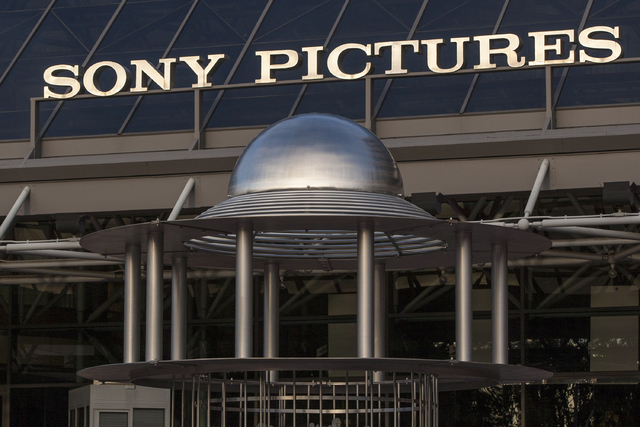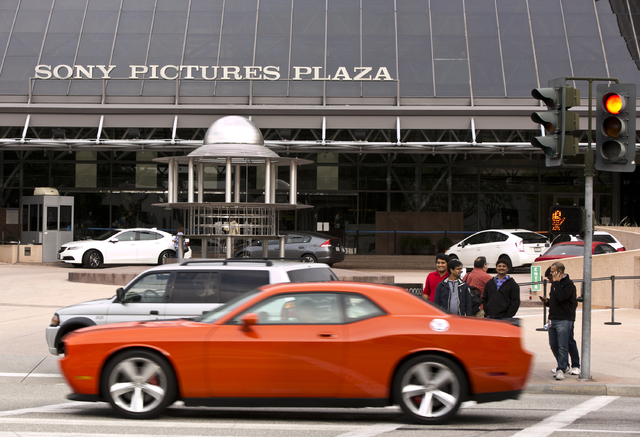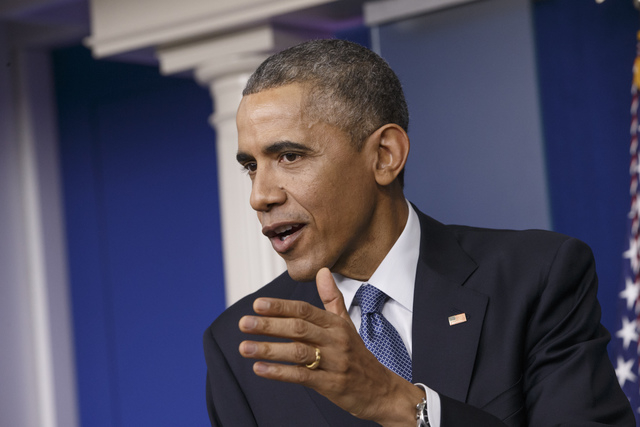N. Korea denies hacking Sony, U.S. stands firm
North Korea said on Saturday U.S. accusations that it was involved in a cyberattack on Sony Pictures were “groundless slander,” and that it wanted a joint investigation into the incident with the United States.
An unnamed spokesman of North Korea’s foreign ministry said there would be serious consequences if Washington refused to agree to the probe and continued to accuse Pyongyang, according to the North Korean U.N. mission and its official KCNA news agency.
The United States stands by its assertion that North Korea was to blame, a White House National Security Council (NSC) spokesman said on Saturday, in response to the remarks.
On Friday, U.S. President Barack Obama blamed North Korea for the devastating cyberattack, which had led to the Hollywood studio cancelling the imminent release of “The Interview,” a comedy on the fictional assassination of North Korean leader Kim Jong Un.
In its first substantive response, the isolated North Korea said it could prove it had nothing to do with the hacking attack.
“We propose to conduct a joint investigation with the U.S. in response to groundless slander being perpetrated by the U.S. by mobilizing public opinion,” the North Korean spokesman was cited as saying by KCNA.
“If the U.S. refuses to accept our proposal for a joint investigation and continues to talk about some kind of response by dragging us into the case, it must remember there will be grave consequences,” the spokesman said.
The North Korean spokesman was quoted as making similar remarks in a statement issued later by North Korea’s U.N. mission.
NSC spokesman Mark Stroh dismissed this, saying: “We are confident the North Korean government is responsible for this destructive attack. We stand by this conclusion.”
“The government of North Korea has a long history of denying responsibility for destructive and provocative actions,” he added.
The U.S. Federal Bureau of Investigation said on Friday it had determined that North Korea was behind the hacking of Sony, saying Pyongyang’s actions fell “outside the bounds of acceptable state behavior.”
Obama said North Korea appeared to have acted alone. Washington began consultations with Japan, China, South Korea, Russia, Australia, New Zealand, and the UK seeking their assistance in reining in North Korea.
Japan and South Korea said they would cooperate. China, North Korea’s only major ally, has yet to respond, but a Beijing-run newspaper said “The Interview” was not a movie for Hollywood or U.S. society to be proud of.
An Obama administration official said on Saturday: “In our cybersecurity discussions, both China and the United States have expressed the view that conducting destructive attacks in cyberspace is outside the norms of appropriate cyber behavior.”
It was the first time the United States had directly accused another country of a cyberattack of such magnitude on American soil and set up a possible new confrontation between longtime foes Washington and Pyongyang.
Obama said he wished that Sony had spoken to him first before yanking the movie, suggesting it could set a bad precedent. “I think they made a mistake,” he said.
“NOT CAVED IN”
Sony Pictures Entertainment Chief Executive Michael Lynton insisted the company did not capitulate to hackers and said it was still looking for alternative platforms to release “The Interview.” This week, a spokeswoman for Sony had said the company did not have further release plans for the $44 million film starring Seth Rogen and James Franco.
Despite Obama’s stern warning to North Korea, his options for responding to the attack by the impoverished state appeared limited. The president declined to be specific about any actions under consideration.
North Korea has been subject to U.S. sanctions for more than 50 years, but they have had little effect on its human rights policies or its development of nuclear weapons. It has become expert in hiding its often criminal money-raising activities, largely avoiding traditional banks.
In a separate statement on Saturday in response to criticism of its rights record, North Korea vowed to boost its “nuclear power” to counter Washington’s hostile policy, saying it had become apparent the United States aimed to invade the North under the guise of human rights abuses.
The FBI said technical analysis of malicious software used in the Sony attack found links to malware that “North Korean actors” had developed and found a “significant overlap” with “other malicious cyber activity” previously tied to Pyongyang.
But it otherwise gave scant details on how it concluded that North Korea was behind the attack.
U.S. experts say Obama’s options could include cyber retaliation, financial sanctions, criminal indictments against individuals implicated in the attack or even a boost in U.S. military support to South Korea, still technically at war with the North.
But the effect of any response would be limited given North Korea’s isolation and the fact that it is already heavily sanctioned for its nuclear program.
There is also the risk that an overly harsh U.S. response could provoke Pyongyang to escalate any cyber warfare.
Non-conventional capabilities such as cyber warfare and nuclear technology are the weapons of choice for the impoverished North, defectors said in Seoul.
GOP urgestheaters to show ‘The Interview’
LOS ANGELES - The Republican National Committee is urging theater owners to play the "The Interview" following Sony’s decision to pull the plug on the controversial comedy, CNN reports.
RNC chairman Reince Priebus has sent a letter to the CEOs of 10 major theater chains asking them to show the film, which has been the source of hackers’ wrath in the last month.
"I want to speak clearly on behalf of the Republican Party: I urge you to show the movie," Priebus wrote to the CEOs, according to CNN. "As a sign of my commitment, if you agree to show this movie, I will send a note to the Republican Party’s millions of donors and supporters urging them to buy a ticket — not to support one movie or Hollywood, but to show North Korea we cannot be bullied into giving up our freedom."
On Friday, President Barack Obama declared that Sony "made a mistake" in cancelling "The Interview’s" release.
"I wish they had spoken to me first. … We cannot have a society in which some dictator someplace can start imposing censorship," Obama said at a news conference, referring to Sony execs. His speech has since been praised by conservative political pundits.
Sony Pictures Entertainment chairman Michael Lynton has defended the studio’s decision, insisting that they "had no choice" but to cancel the Christmas release following hackers’ threats of 9/11-like violence that forced theaters to pull the film.
"We have not caved. We have not given in. We have persevered," Lynton told CNN in an interview that will air on "AC360" on Sunday.
The RNC letter also said that a foreign regime — referring to North Korea, which the FBI has linked to the cyber-attacks — shouldn’t "dictate the movies we can and cannot watch."
"As you know, the Republican Party and Hollywood have at times been at odds," the letter continued. "But we can all agree that the current situation regarding the release of ‘The Interview’ goes far beyond politics. It is about freedom and free enterprise."
— Maane Khatchatourian/Variety



















